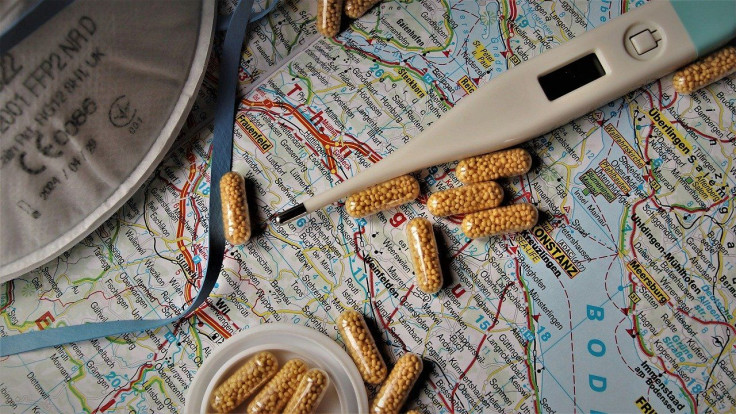Latest Advisory From NHS Warn Coronavirus Victims Not To Take Ibuprofen

KEY POINTS
- Among the symptoms of coronavirus are fever and muscle aches
- Many use ibuprofen to treat such symptoms
- A new advisory from NHS warns against ibuprofen use for coronavirus
The global pandemic brought about by COVID-19 has forced the government to implement drastic measures in the UK. These include avoiding crowded places, gatherings, and whenever possible, to work from home.
Those that exhibit coronavirus symptoms are being asked to go on self-isolation. Like many other respiratory illnesses, such as flu, a lot of people are expected to treat the symptoms on their own. There is one medication, however, that health officials are urging people afflicted by COVID-19 to avoid, and that is ibuprofen.
On The Safe Side
In a statement, the National Health Service said there is no strong evidence at present that ibuprofen can make patients of coronavirus or COVID-19 worse.
Until more information is obtained, however, everyone is advised to take paracetamol in treating the symptoms of COVID-19, unless your doctor tells you paracetamol is not suitable, said the NHS.
The health body also stated that if you have been taking ibuprofen or any other non-steroidal anti-inflammatory drug on your doctor’s advice, continue on taking it. Do not stop unless you check with your doctor whether or not it is okay to discontinue taking ibuprofen.
A Warning Tweet
The NHS advice came after Olivier Veran, the health minister of France and a qualified doctor and neurologist, sent out a tweet on Saturday saying anti-inflammatories may worsen the infection.
His tweet said that the taking of anti-inflammatories might be a factor in exacerbating the infection. He also said that in case of a fever, one should take paracetamol. Though he also added that if you are already taking anti-inflammatory drugs, you need to seek your doctor’s advice first if you want to stop.
A Brush with Danger
A story of the experience of one family about a coronavirus victim taking ibuprofen further stoked greater fears. Dan and Maddie Milneer-Collins narrated how the mild symptoms of their daughter, Amelia, worsened after taking ibuprofen during the weekend.
In a Facebook post, the stepdad of Amelia, Dan, shared a photo of his stepdaughter with warnings on the caption. He advised everyone that if your children have coronavirus symptoms, do not give them ibuprofen.
Amelia had not been feeling well since Tuesday and had a fever, cold, and cough. Concerned with Amelia’s symptoms, Dan and Maddie called 111. They promptly sent paramedics to their home and check on their daughter.
While the couple waited for the arrival of the paramedics, they gave an ibuprofen tablet to their daughter as they cannot find Calpol nearby, a drug that contains paracetamol. After taking the anti-inflammatory drug, the symptoms of Amelia became worse. Dan said that within an hour of taking ibuprofen, she dropped dramatically.
They said Amelia was panting while attempting to breathe and her heart rate was very fast. She could not keep her eyes open, could not lift her head up, and her entire body was shaking. Amelia’s temperature also rose to 39.4.
Her parents again called 111, and the emergency services sent out an ambulance. When the paramedics arrived, they were able to lower her temperature and stats a bit. Though her temperature is still higher than normal, it is not dangerously high anymore. At present, Amelia is back on Calpol.
Coronavirus Care
The NHS advised that if you have symptoms of the coronavirus, you are to drink lots of water and should only take paracetamol to alleviate the symptoms. You are also advised to stay home for at least seven days. If you are living with other people, they should also stay at home for at least 14 days, beginning when the first person first showed the symptoms.
If you are living with someone aged 70 years old or above and have chronic conditions, or someone with a weak immune system, find another place for them to stay. The same goes if you are living with a pregnant woman. This is to ensure they do not get the worse end of the infection. If you need to stay home together, avoid having close contact with each other and try to keep away from one another as much as possible.
© Copyright IBTimes 2024. All rights reserved.





















